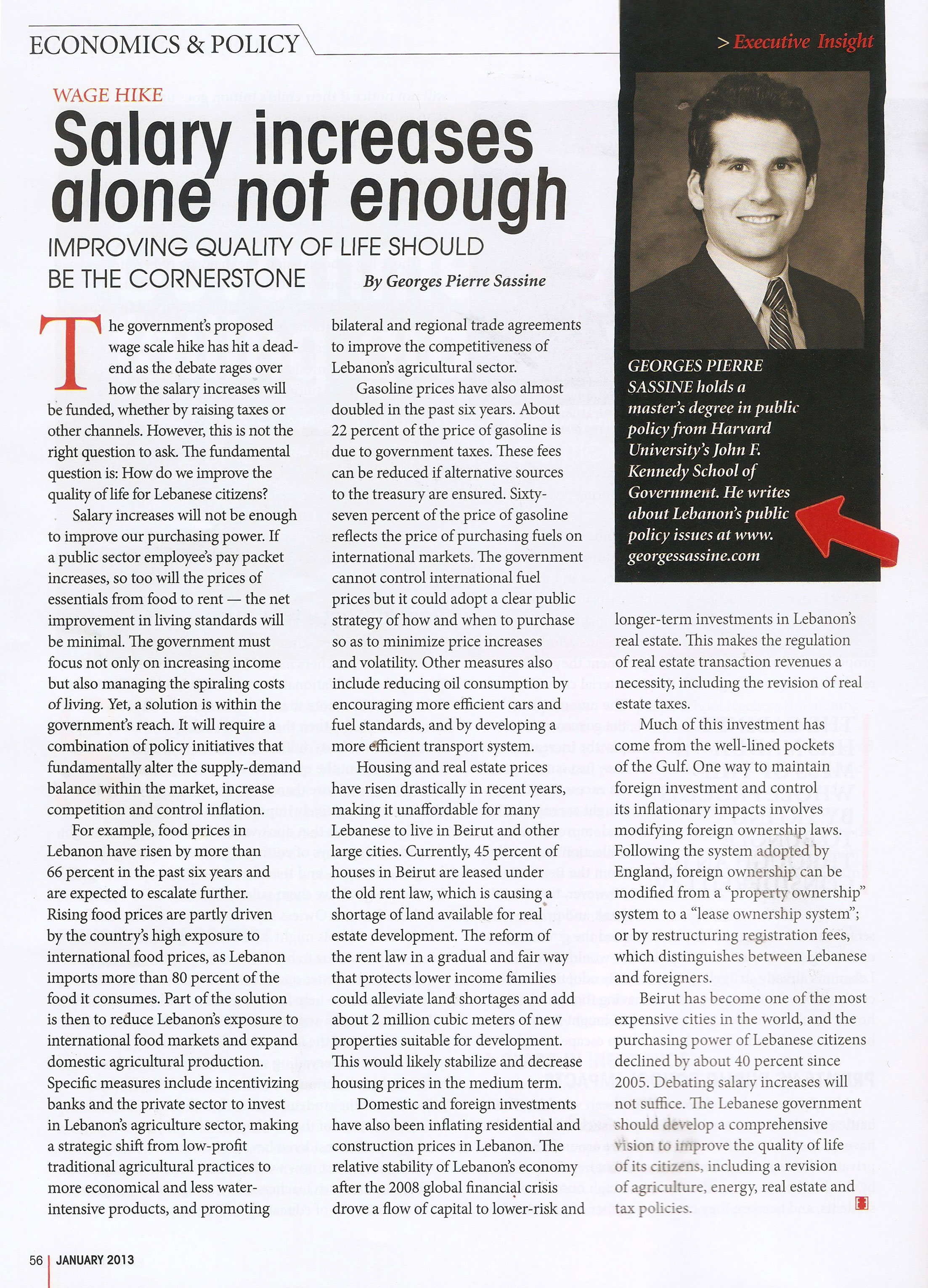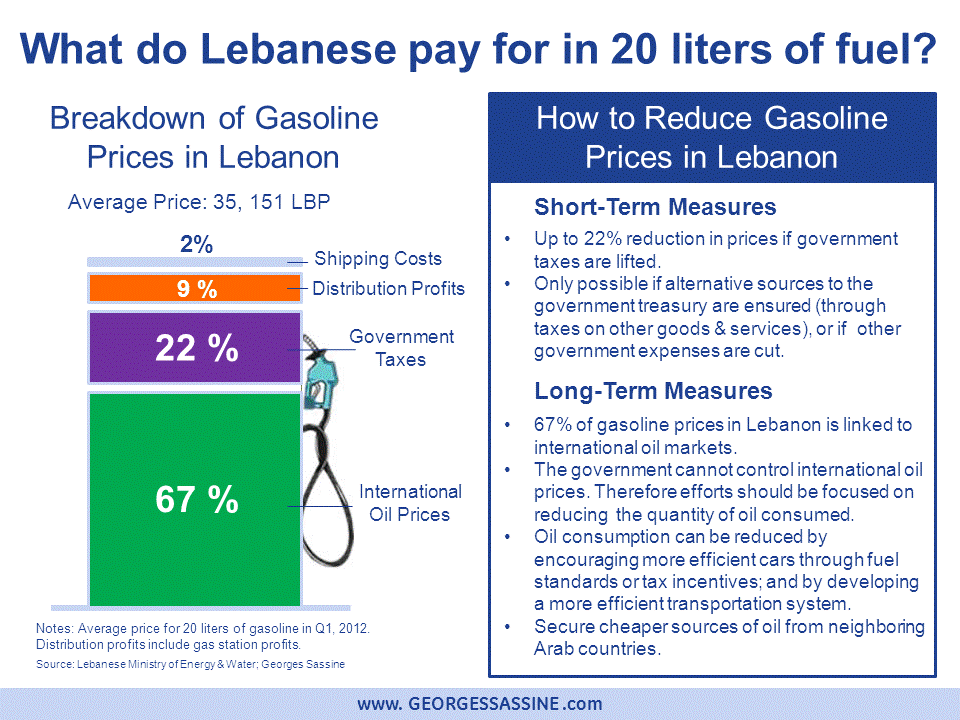Improving quality of life should be cornerstone of government policy
By Georges Pierre Sassine on January 03, 2013
A version of this article appeared in the January 2013 print edition of Executive Magazine, on page 56.
 The government’s proposed wage scale hike has hit a dead-end as the debate rages over how the salary increases will be funded, whether by raising taxes or other channels. However, this is not the right question to ask. The fundamental question is: How do we improve the quality of life for Lebanese citizens?
The government’s proposed wage scale hike has hit a dead-end as the debate rages over how the salary increases will be funded, whether by raising taxes or other channels. However, this is not the right question to ask. The fundamental question is: How do we improve the quality of life for Lebanese citizens?
Salary increases will not be enough to improve our purchasing power. If a public sector employee’s pay packet increases, so too will the prices of essentials from food to rent — the net improvement in living standards will be minimal. The government must focus not only on increasing income but also managing the spiraling costs of living. Yet, a solution is within the government’s reach. It will require a combination of policy initiatives that fundamentally alter the supply-demand balance within the market, increase competition and control inflation.
For example, food prices in Lebanon have risen by more than 66 percent in the past six years and are expected to escalate further. Rising food prices are partly driven by the country’s high exposure to international food prices, as Lebanon imports more than 80 percent of the food it consumes. Part of the solution is then to reduce Lebanon’s exposure to international food markets and expand domestic agricultural production. Specific measures include incentivizing banks and the private sector to invest in Lebanon’s agriculture sector, making a strategic shift from low-profit traditional agricultural practices to more economical and less water-intensive products, and promoting bilateral and regional trade agreements to improve the competitiveness of Lebanon’s agricultural sector.
Gasoline prices have also almost doubled in the past six years. About 22 percent of the price of gasoline is due to government taxes. These fees can be reduced if alternative sources to the treasury are ensured. Sixty-seven percent of the price of gasoline reflects the price of purchasing fuels on international markets. The government cannot control international fuel prices but it could adopt a clear public strategy of how and when to purchase so as to minimize price increases and volatility. Other measures also include reducing oil consumption by encouraging more efficient cars and fuel standards, and by developing a more efficient transport system.
Housing and real estate prices have risen drastically in recent years, making it unaffordable for many Lebanese to live in Beirut and other large cities. Currently, 45 percent of houses in Beirut are leased under the old rent law, which is causing a shortage of land available for real estate development. The reform of the rent law in a gradual and fair way that protects lower income families could alleviate land shortages and add about 2 million square meters of new properties suitable for development. This would likely stabilize and decrease housing prices in the medium term.
Domestic and foreign investments have also been inflating residential and construction prices in Lebanon. The relative stability of Lebanon’s economy after the 2008 global financial crisis drove a flow of capital to lower-risk and longer-term investments in Lebanon’s real estate. This makes the regulation of real estate transaction revenues a necessity, including the revision of real estate taxes.
Much of this investment has come from the well-lined pockets of the Gulf. One way to maintain foreign investment and control its inflationary impacts involves modifying foreign ownership laws. Following the system adopted by England, foreign ownership can be modified from a “property ownership” system to a “lease ownership system”; or by restructuring registration fees, which distinguishes between Lebanese and foreigners.
Beirut has become one of the most expensive cities in the world, and the purchasing power of Lebanese citizens declined by about 40 percent since 2005. Debating salary increases will not suffice. The Lebanese government should develop a comprehensive vision to improve the quality of life of its citizens, including a revision of agriculture, energy, real estate and tax policies.
Georges Pierre Sassine holds a master’s degree in public policy from Harvard University’s John F. Kennedy School of Government. He writes about Lebanon’s public policy issues at www.georgessassine.com
A version of this article appeared in the January 2013 print edition of Executive Magazine, on page 56.
(Executive Magazine: a leading business, economics and policy magazine in Lebanon and the Middle East)



